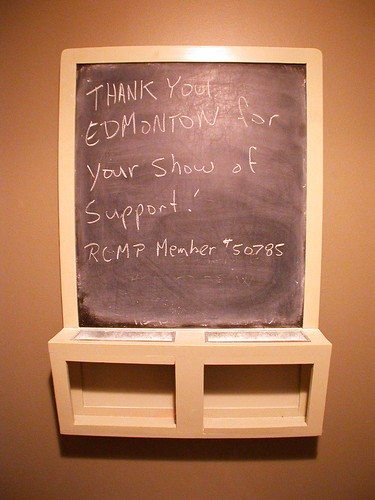RCMP fails to submit plan on how it will respond to Nova Scotia mass shooting inquiry
RCMP #RCMP

The RCMP has failed to meet a self-imposed deadline to detail how they plan to implement recommendations from the inquiry into the 2020 Nova Scotia mass shooting.
When the Mass Casualty Commission released its final report last March into the worst mass shooting in modern Canadian history, complete with 130 recommendations, the Mounties said they planned to release an “implementation strategy” before the end of 2023.
The national police force also said the RCMP commissioner would provide a progress report.
But that deadline has passed, and on Monday the RCMP did not respond to a request for comment about the delay.
Commanding Officer Dennis Daley did release a message on Tuesday, however, saying the force had been “anxious to learn whether the work we had under way to strengthen our response to critical incidents, our collaboration with partners, and our service to communities, would align with the recommendations and vision for the future of public safety.”
Daley went on to say he was “confident” in the RCMP’s efforts to address recommendations of the report.
“I believe this work will strengthen the safety and wellbeing of Nova Scotians and of all Canadians,” he said.
Top Nova Scotia Mountie reflects on MCC reportIn an interview with Tom Murphy, Dennis Daley talks about changes made since the Portapique tragedy, including emergency alerting.
The public inquiry’s final report offered a blistering critique of the RCMP’s actions in April 2020, when a man disguised as a Mountie and driving a replica RCMP cruiser fatally shot 22 people during a 13-hour rampage through northern and central Nova Scotia.
Most of the recommendations in the 3,000-page report were aimed at improving public safety, addressing the root causes of gender-based violence and reforming the RCMP. The inquiry found widespread failures in how the Mounties responded to the mass killing, saying the federal government should rethink the RCMP’s central role in Canadian policing.
Report detailed shortcomings
The seven-volume report said the RCMP missed warning signs about the killer, including reports of domestic violence, possession of illegal firearms and repeated run-ins with the law.
And when the shooting started in Portapique, N.S., on the night of April 18, 2020, the inquiry found that the Mounties were quick to discount witness statements and were so poorly managed that officers were always one step behind the killer.
As well, the inquiry found the RCMP failed to promptly send out alerts to the public until it was too late for some of his victims.
Twenty-two people died on April 18 and 19, 2020. Top row from left: Gina Goulet, Dawn Gulenchyn, Jolene Oliver, Frank Gulenchyn, Sean McLeod, Alanna Jenkins. Second row: John Zahl, Lisa McCully, Joey Webber, Heidi Stevenson, Heather O’Brien and Jamie Blair. Third row from top: Kristen Beaton, Lillian Campbell, Joanne Thomas, Peter Bond, Tom Bagley and Greg Blair. Bottom row: Emily Tuck, Joy Bond, Corrie Ellison and Aaron Tuck. (CBC)
Among other things, the commission’s final report recommended eliminating the RCMP academy in Regina and replacing its 26-week training course with a three-year post-secondary degree, based on an approach used in Finland.
And the inquiry recommended that the federal public safety minister establish priorities for the RCMP, “retaining the tasks that are suitable to a federal policing agency,” an approach that could see the police force relinquish its role in contract-policing at the community level.
Previous attempt at reforms
During public hearings in September 2022, the inquiry heard from a former assistant commissioner of the RCMP who said the police force has a history of ignoring calls for change. Cal Corley cited a 2017 study that included a 41-page list of recommendations for change that he said were largely ignored by the RCMP.
Meanwhile, an independent committee is overseeing how the RCMP and governments are responding to the inquiry’s recommendations. Last month, the chairwoman of the committee, Linda Lee Oland, said she had not received any complaints about lack of progress, saying no one was “dragging their feet.”
The committee, which has a three-year mandate, is expected to submit a report on its progress later this month.
The committee, appointed by the federal and Nova Scotia governments, includes victims’ family members, community representatives, RCMP and government officials.
Oland said the committee’s report will provide a yardstick for the public to measure how much progress has been made. She stressed that the committee is not in charge of implementing recommendations, only monitoring them and providing accountability.